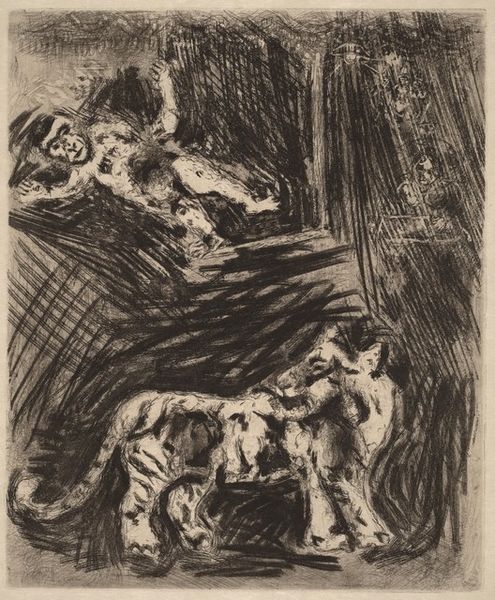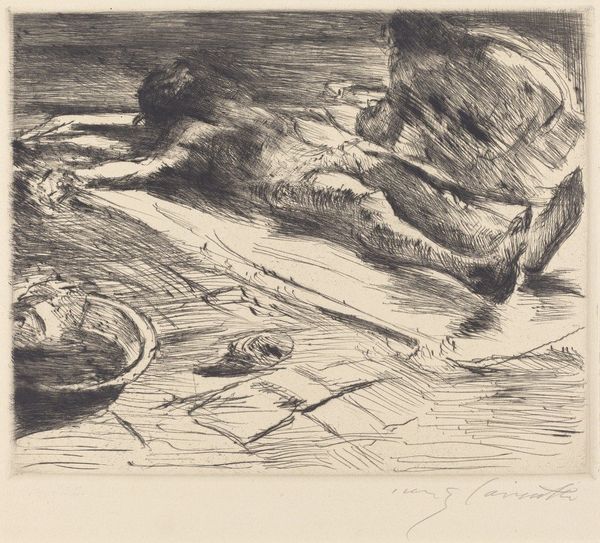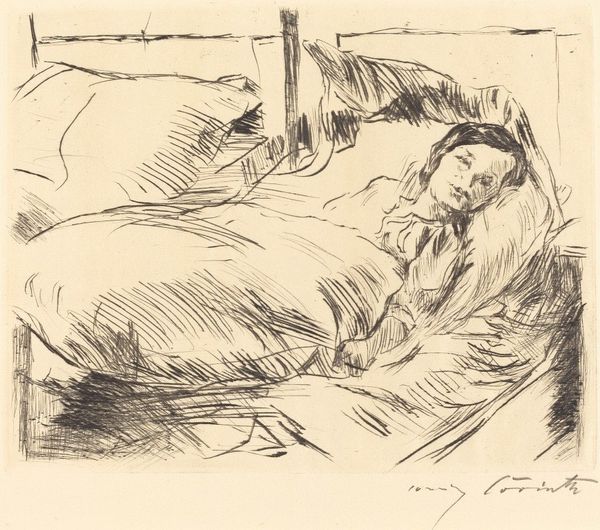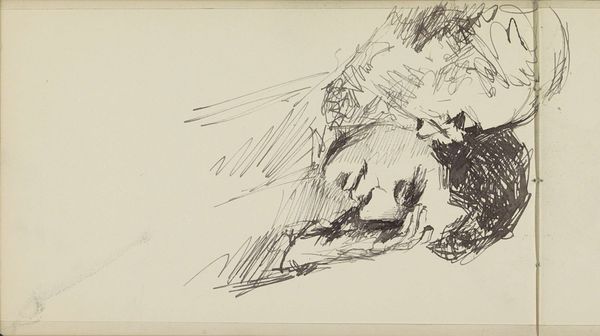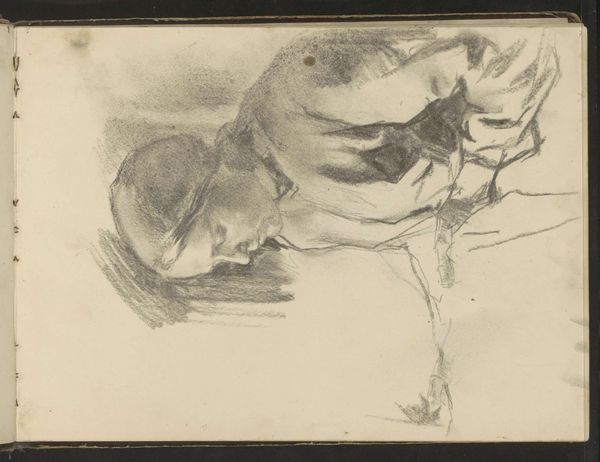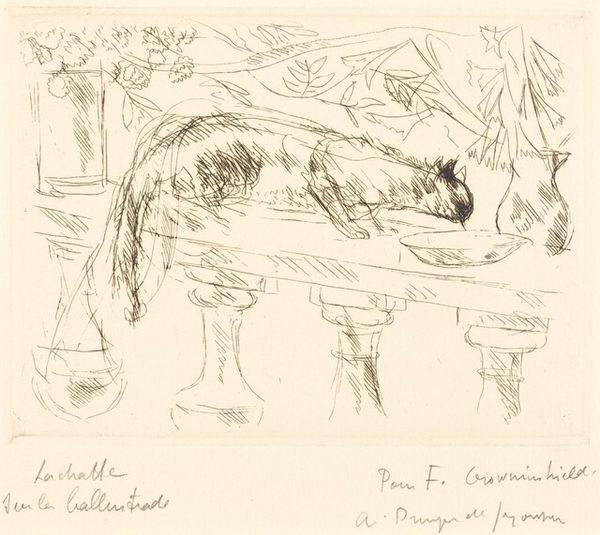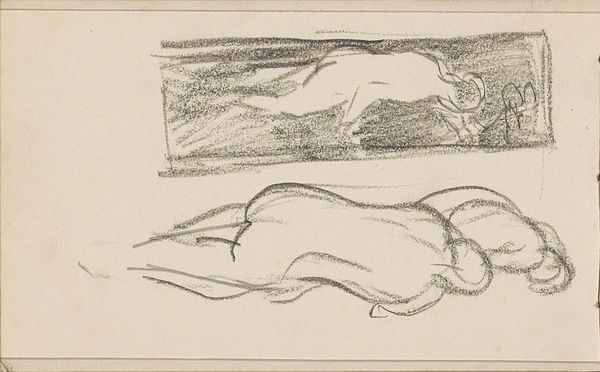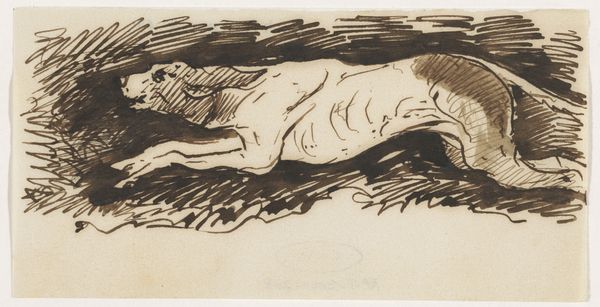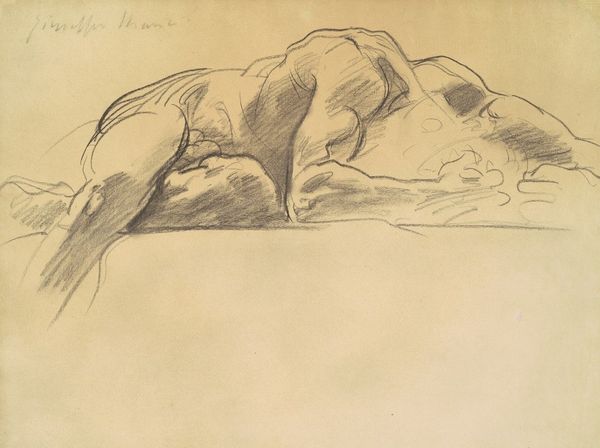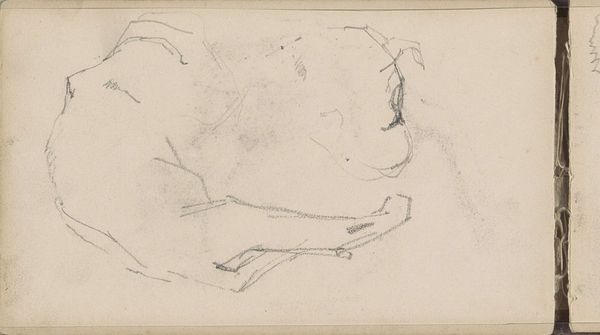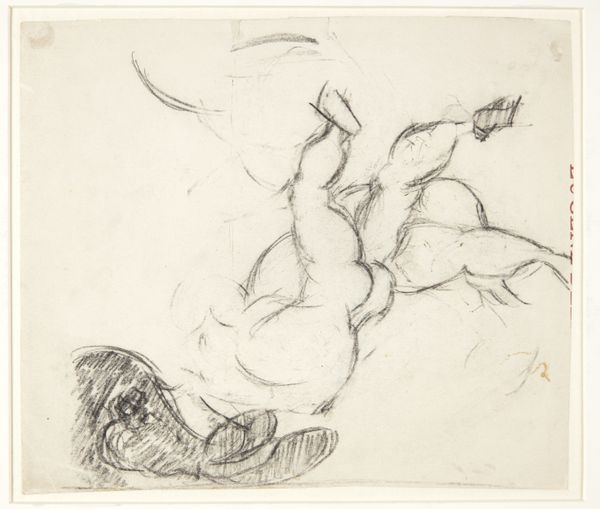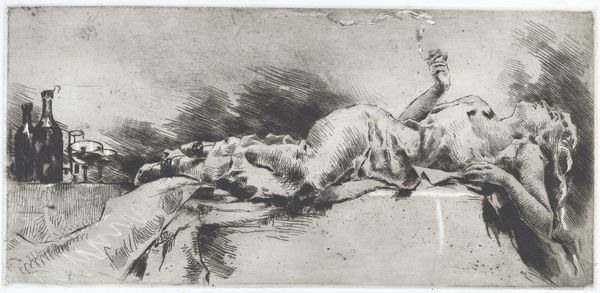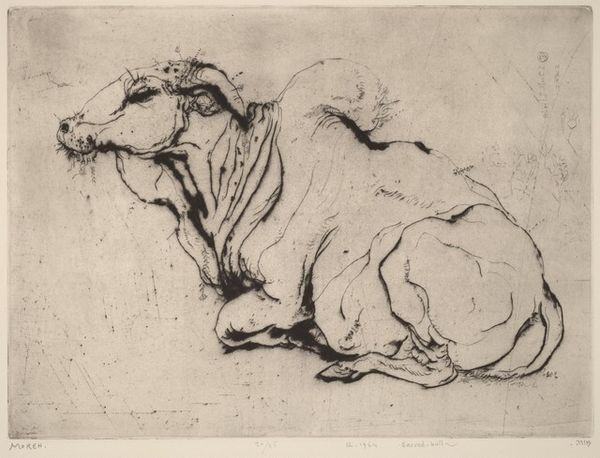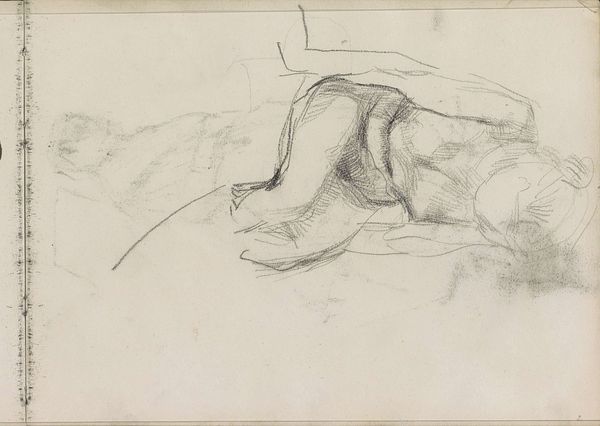
drawing, etching, intaglio
#
drawing
#
ink drawing
#
pen sketch
#
etching
#
intaglio
#
figuration
#
expressionism
#
nude
Copyright: Public Domain: Artvee
Editor: We're looking at "Entombment," an etching by Lovis Corinth created between 1921 and 1922. It’s an incredibly raw and emotional depiction; the linework feels frantic, emphasizing the grief. What strikes you most about this piece? Curator: The etching medium itself, with its inherent capability for stark contrasts and intricate lines, immediately connects us to the socio-political context of post-World War I Germany. Expressionist artists like Corinth used these tools to depict raw emotion and social unrest. Do you think Corinth aimed to provoke a particular feeling or social response? Editor: Possibly a commentary on loss in the aftermath of the war? I mean, the loose handling of the figure gives a sense of vulnerability and pain. It's not idealized or heroic, which is compelling. Curator: Precisely. The departure from traditional heroic representations towards something much more visceral directly engages with the societal trauma. It speaks to a rejection of old orders and a focus on lived experiences. Where do you see that rejection most clearly? Is it just the raw feeling? Editor: It's also in the unconventional composition. The body seems almost dumped into the frame, lacking a sense of ceremony or order. That clashes with traditional entombment scenes. Curator: Exactly. By stripping away the idealized and formally composed elements, Corinth thrusts the viewer into an uncomfortable confrontation with mortality. In doing so, what public role do you think Corinth envisions for art? Editor: I suppose it’s about forcing a confrontation with uncomfortable truths, demanding empathy. The artwork becomes a vehicle for shared experience and societal reflection. Curator: Yes, and considering the prevailing atmosphere of the Weimar Republic, it certainly served as a visual counter-narrative. I find this makes the work all the more poignant. Editor: That's a great insight. I see the power of connecting personal experience to broader social movements now. Thank you!
Comments
No comments
Be the first to comment and join the conversation on the ultimate creative platform.
